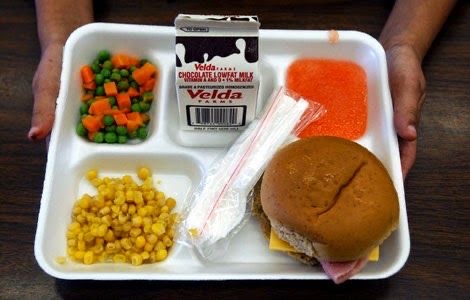Free Lunch Stigma
October 4, 2022
It is impossible to avoi d the idealist views of what it means to have a free lunch in a country that thrives on big establishments and successful businesses. In a society where we, as a people, are slaves to the consistent consumerism strategies of the economy, it is viewed by many that if one is provided with a free lunch daily, they are poor and in turn are the lesser to those that can afford to hand over their pay checks to fill the fridge everyday.
d the idealist views of what it means to have a free lunch in a country that thrives on big establishments and successful businesses. In a society where we, as a people, are slaves to the consistent consumerism strategies of the economy, it is viewed by many that if one is provided with a free lunch daily, they are poor and in turn are the lesser to those that can afford to hand over their pay checks to fill the fridge everyday.
Entering out of the age of the Covid-19 pandemics mandatory quarantine, millions across the nation had suffered with reaching the standard profit they had obtained before being restricted to their homes. Millions were forced out of jobs that require interactive presence to achieve completion of their work, and students were shoved in front of a computer expected to learn, but living in a stand still for merely a year. In these conflicts economically, it is inferred many struggled to provide for themselves and their families in an agonizing time of confusion, fear, and misdirection by media creating the virus to be either more or less than what it actually was; there was never a true inbetween, and instead became a political debacle of morality vs reasoning.
But now, at the start of the 2022 school year, it is expected that students and their families can afford to pay for their lunches provided by the lunch staff on a daily basis. While I think, yes, the teachers and staff at schools across the nation are paid through the taxes and budgeting of students welfare, it is detrimental to those that just fall short of gaining eligibility for free lunch. While poverty is described as those that can’t afford necessities such as three meals a day, water, and proper shelter, I would like to convey a more broad sense of what it means to have a low income of a family made of multiple children. The success of many people in Strongsville is due to the representation of certain individuals’ legacy and the career paths that bestoy power in culture over others such as a police officer, lawyer, eterny, etc. The middle aged women working double shifts at their job isn’t seen as a person in the place of economic crisis, for the children have clothes to wear to school everyday and they fit in with society wrapped in a bow of fallistic ideals. Unfortunately the reality of it all is the suggestion is incorrect, stability is measured by being able to pay the bills, insurance that arises with every inconvenience or wreckage, and not having to pick between gas or food.
The Gen-Z generation has made it clear of their goals of progression, even in all the contradictions we display at times witn given issues. But I see the severity of social ques given to students that have access to free lunches. Despite knowing how hard a guardian works for their children on a daily basis it doesnt change the guilt one stumbles across at the hot shame of telling the lunch lady they have lunch for free compared to student who can. In my time of coming from numerous different schools, I’ve come to witness many that can have free lunch skip it all together –wanting to avoid terrany and social isolation of their peers. This doesn’t make that specific individual spoiled or selfish for every human has emotions and were born with notions to such views that transform into other areas of life. Though it may affect the economy or a school district’s quality, wouldn’t it be for the better if all students received one free lunch per day, for it may be the only meal they can afford in their week?
The stigma surrounding free lunch and what it can mean for students in or merely approaching what it means to have low income or poverty struggle daily with choosing what is best for themselves vs what is good for their families. Schools should provide free lunches to all students longing for an environment of sufficient strong-willed education.

